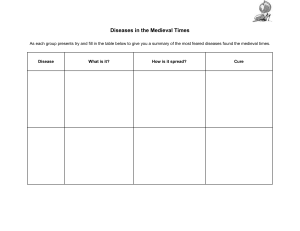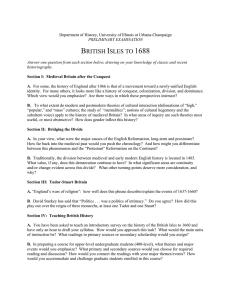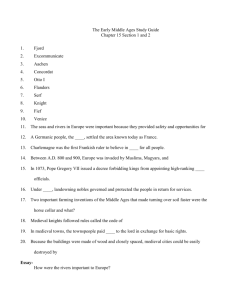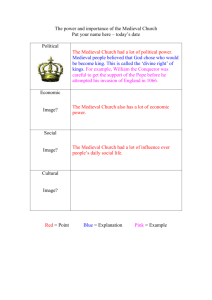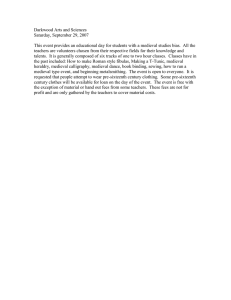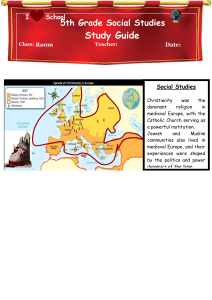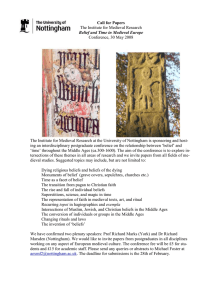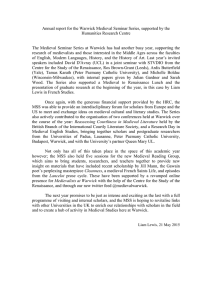M E EDIEVAL
advertisement
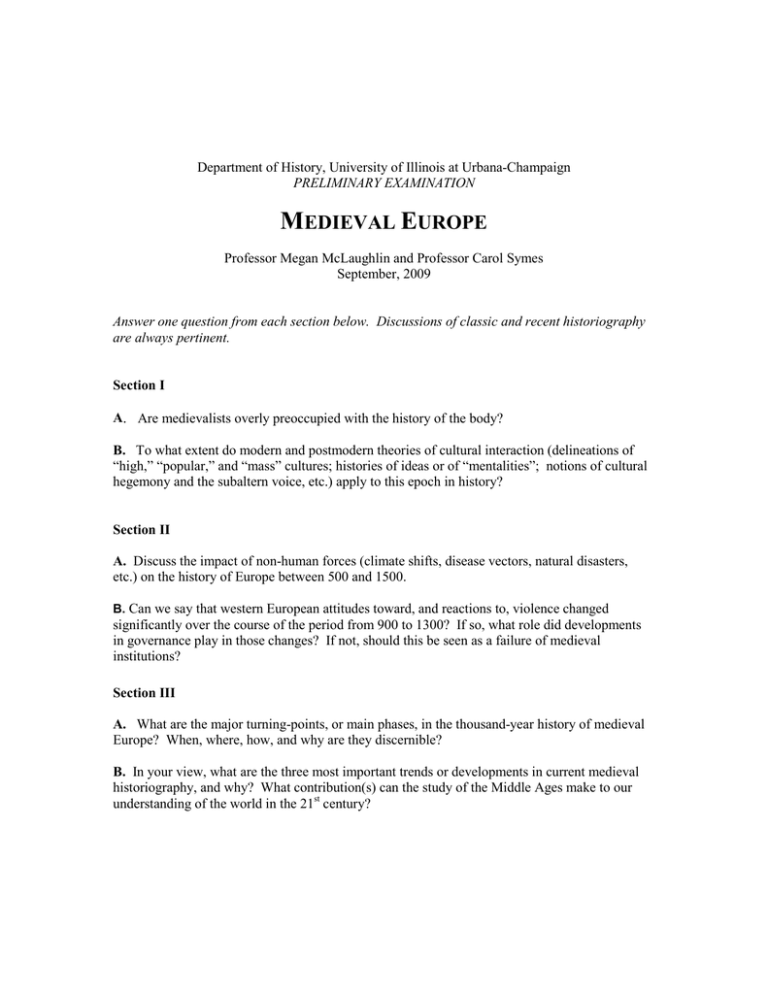
Department of History, University of Illinois at Urbana-Champaign PRELIMINARY EXAMINATION MEDIEVAL EUROPE Professor Megan McLaughlin and Professor Carol Symes September, 2009 Answer one question from each section below. Discussions of classic and recent historiography are always pertinent. Section I A. Are medievalists overly preoccupied with the history of the body? B. To what extent do modern and postmodern theories of cultural interaction (delineations of “high,” “popular,” and “mass” cultures; histories of ideas or of “mentalities”; notions of cultural hegemony and the subaltern voice, etc.) apply to this epoch in history? Section II A. Discuss the impact of non-human forces (climate shifts, disease vectors, natural disasters, etc.) on the history of Europe between 500 and 1500. B. Can we say that western European attitudes toward, and reactions to, violence changed significantly over the course of the period from 900 to 1300? If so, what role did developments in governance play in those changes? If not, should this be seen as a failure of medieval institutions? Section III A. What are the major turning-points, or main phases, in the thousand-year history of medieval Europe? When, where, how, and why are they discernible? B. In your view, what are the three most important trends or developments in current medieval historiography, and why? What contribution(s) can the study of the Middle Ages make to our understanding of the world in the 21st century?
